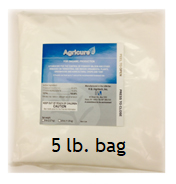
- Its active ingredient, potassium bicarbonate, is commonly used in food products.
- Naturally occurring compound that is not expected to have adverse effects on humans or the environment when used as fungicide.
- It is safer for the environment than other alternatives.
- Is recommended for use on over 150 different flowers, trees, fruits, vegetables, and turfs. It can be used in organic vegetable production and even indoors.
- Fully dissolves in water and is easily sprayed on leaves, flowers, stems and branches.


Range of diseases control or suppress
Will control on contact and will provide up to three weeks of residual protection.
Powdery mildew

Will prevent:
- Alternaria blight
- Anthracnose
- Blackspot
- Botrytis blight
- Cercospora leaf spot
- Downy mildew
- Monilinea fruit and blossom rot
- Phomopsis blight
- Rust
- Scab
- Septoria leaf spot
on powdery mildew in roses

Powdery mildew on rose stems and leaves, before treatment with any fungicidal product.

Dept. of Plant Pathology & Plant-Microbe Biology, Cornell University. 1997-1999
*Discontinued

Left leaves shows the eradication of powdery mildew and the leaves on the right show leaves that have been protected with Agricure; and have not become infected with powdery mildew.


Dept. of Plant Pathology, Texas A&M - 1995
on powdery mildew in apples

Dept. of Plant Pathology Washington State University. 1999
on scab, fly speck and sooty blotch in apples

Dept. of Plant Pathology Ohio State University. 1992
on powdery mildew in grapes

J. A. Attaway. Dept. of Plant Pathology. University of California, 2005
on powdery mildew in grapes

Hulst Research Farm Services. California 2005
on rust in coffee

William Werner Farm. San Marcos, Guatemala 2014
